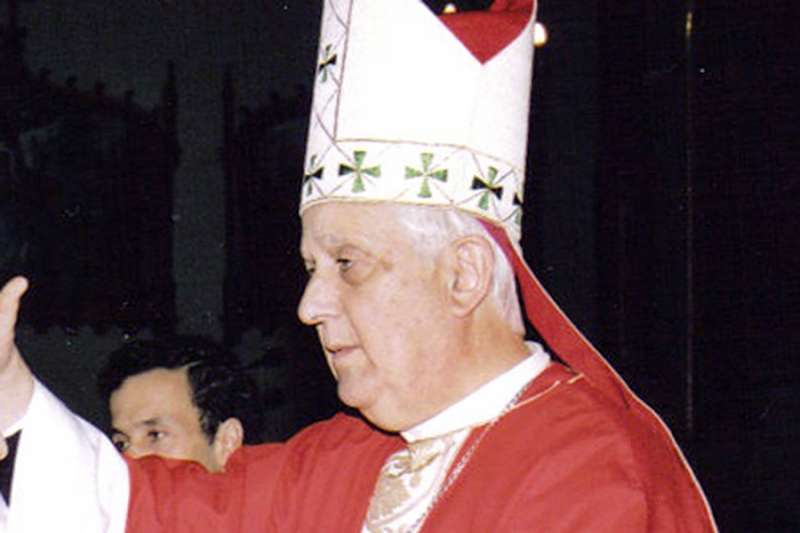Over the weekend, Chilean Bishop Alejandro Goić Karmelić suspended several priests after allegations of sexual misconduct were raised against them. He apologized for not following up when the accusations were first brought to his attention.
“I would like to ask forgiveness for my actions in this case,” the bishop said in a May 19 statement.
Goiƒá, who heads the diocese of Rancagua, said he “acted without the proper swiftness” when a woman came to him nearly a year ago with concerns regarding the conduct of Fr. Luis Rubio and other priests.
Goić's apology came the day after a program detailing accusations against Rubio was aired on Chile's TV13 channel, the same station that leaked Pope Francis' 10-page letter to Chilean bishops chastising them for a systematic cover-up of clerical abuse and calling them to institute deep changes.
The program was aired May 18, the day after Goić returned from the May 15-17 meeting with Pope Francis. It focuses on the testimony of Eliza Fernandez, a youth minister in the parish of Paredones who approached the bishop last year with concerns about Fr. Rubio's behavior, particularly with minors.
Rubio had been part of a priestly fraternity referred to as “La Familia,” several of whose members have been accused of sexual misconduct, including the abuse of minors.
“I do not know whether to call it a brotherhood, a sect, or a group of priests who have practices that do not conform to their status as clerics; and with respect to young people,” Fernandez said in the program, adding that the confraternity had shown an unnatural interest in youth who were 'between 15 and 29 years old,' and that some publicly joked about being homosexual.
In the program, Rubio admitted to sending nude photos of himself to a Facebook account he thought belonged to a 16-year-old named Pablo, but which was a fake profile Fernandez had set up to catch the priest.
“I'm not asking for saints, but for a person who is dignified,” Fernandez said in the program, adding that she cannot imagine how a priest would be able to hear her confession and then send naked photos to a minor via social media.
Having been approached by TV13 reporters after celebrating Mass May 12, Rubio in the footage admitted to sending the pictures, saying “it was my mistake, I acknowledge that,” and calling the act “a horrible shame.”
When asked if he would remain a priest, Rubio said “it's a decision that I need to make in my conscience.” He said the day was one “of great sadness for me, and I regret what I have done...I recognize what I have done, that it is horrible, but I cannot say anything more.”
In a previous statement, aired on the program, Bishop Goiƒá had said, “I did not study to be a detective, I studied to be a pastor.” He said that no one had come to him with a “formal accusation,” and that while Fernandez had reached out regarding personal concerns, she had not lodged an official complaint and had not given him any proof, so he could not investigate.
In his statement, Goiƒá said he values the reporting done by TV13, “because they have delivered aspects that I did not know, and which have affected me greatly and caused me great suffering, as well as the community.”
The bishop said he had already submitted a formal complaint to Rancagua's prosecutor, which contained background on Rubio from the program, and that he will send all the information they have available to the Holy See this week.
Goić also suspended several diocesan priests mentioned in the TV13 program, asking them to halt their ministry until a full investigation can be done.
“I deeply regret any action or situation that violates the values and principles that underpin our Catholic Church and I want to express my clear availability to collaborate in any type of procedure which derives from the knowledge of these facts,” he said.
He asked anyone with information about actions which “do not coincide with the priesthood” to inform their dioceses, and provided the email addresses for the diocese of Rancagua.
“I must admit that, personally, as a Christian and as a pastor, I find myself deeply affected by this difficult situation, which hurts and embarrasses me,” he said, and prayed that “the truth will be revealed, the whole truth, in these cases and in any other situation which threatens the Gospel of the love of Christ.”
Goić, along with every other active bishop in Chile, submitted a written resignation to Pope Francis Thursday, the last day of their meeting with Pope Francis.
The meeting was called by Pope Francis himself last month following an in-depth investigation of abuse cover-up by Chilean Church hierarchy. The investigation, carried out by Maltese Archbishop Charles Scicluna and Msgr. Jordi Bertomeu, resulted in a 2,300-page report, which has not been made public.
The investigation was initially centered around Bishop Juan Barros of Osorno, appointed to the diocese in 2015 and accused by at least one victim of covering up abuses of Chilean priest Fernando Karadima.
In 2011, Karadima was convicted by the Vatican’s Congregation for the Doctrine of the Faith of abusing minors and sentenced to a life of prayer and solitude. Allegations of cover-up were also made against three other bishops — Andrés Arteaga, Tomislav Koljatic and Horacio Valenzuela — whom Karadima's victims accuse of knowing about Karadima’s crimes and failing to act.
Pope Francis initially defended Barros, saying he had received no evidence of the bishop's guilt, and called accusations against him “calumny” during a trip to Chile in January. However, after receiving Scicluna's report, Francis apologized, said that he had been seriously mistaken, and asked to meet the bishops and more outspoken survivors in person.
As of now, no decisions have been made regarding the bishops' fate, and it will be up to Francis whether to accept or reject their resignations.

